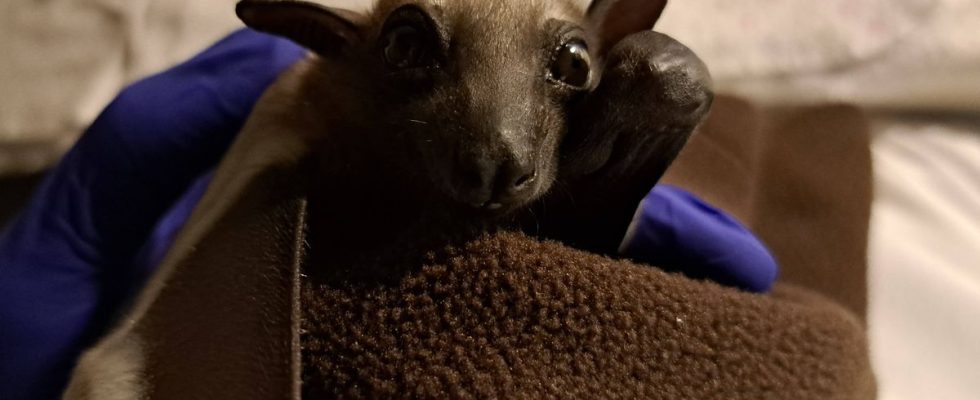Are bats being unfairly singled out? A study carried out by scientists from around the world, spotted by the University of Montpellier (Hérault) and the CNRS, challenges the received idea that these critters are all the origin of a myriad of viruses harmful to humans. These researchers noted this injustice by combing through the scientific literature written on African bats. They realized that there was little evidence, apart from, notably, the case of the Marburg virus, that bats spread diseases in abundance.
“We found no convincing evidence to support the prevailing idea that bats harbor a large number of viruses that are transmitted to humans,” says Natalie Weber, leader of the team that conducted this careful study. investigation. Out of 162 scientific publications, detailing the behaviors of more than 80,000 individuals belonging to more than 167 species of these nocturnal animals, these researchers did not find, in fact, any bat playing a central role in the transmission of viruses to humans in this region of the globe. Except the Egyptian fruit bat, responsible for the spread of the Marburg virus, which is devastating in humans.
Egyptian fruit bat spreads virus, not all bats
According to this international study, it is because of a handful of species, including the nasty flying fox, that we are a little too suspicious of bats: we often have the impression that they are a single entity, when in reality they are very numerous. Africa is home, for example, to no less than 324 different species of bats. “Instead of stating that ‘bats harbor the Marburg virus,’ it is more accurate to state that ‘the Egyptian fruit bat, a specific species of bat, harbors the Marburg virus,'” explains Sébastien Puechmaille, co-author of the study and researcher at the Institute of Evolutionary Sciences in Montpellier (Hérault). Moderating our language towards these birds “avoids wrongly associating all species of bats with the Marburg virus”, he points out.
The problem is that when we generalize a little too much, with these animals, it is not very good for them: this international study fears that these clichés which persist about bats could be an obstacle to their protection. “Fear and active persecution of bats are increasing considerably, and it is likely that populations are decreasing across Africa,” laments Dina Dechmann, co-author of this study. Careful, science-based communication of findings, and a balance between potential risks and benefits, will be essential to enable humans and bats to live side by side in our changing world. »

